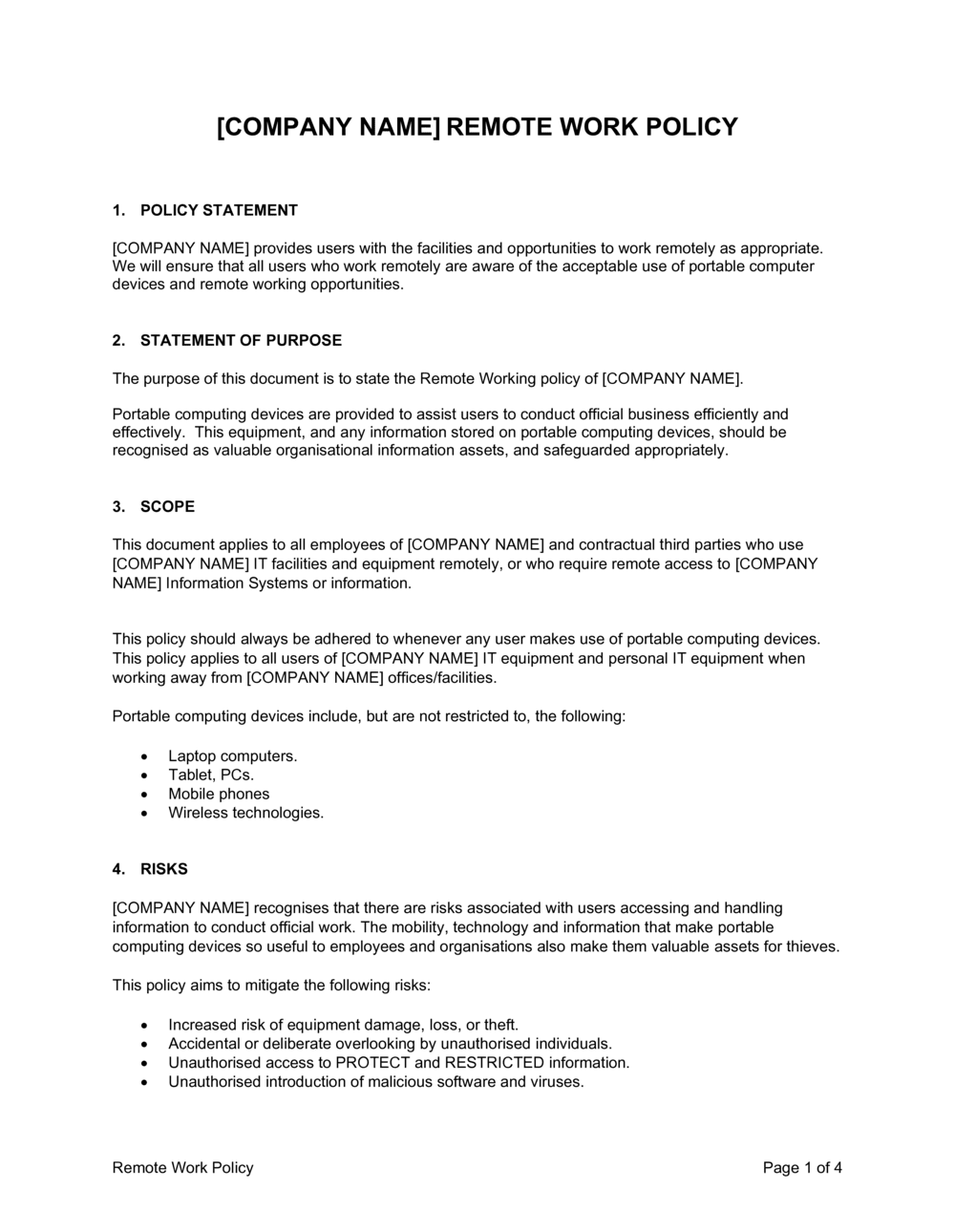
Crafting Effective Remote Work Policies for Employees

Navigating the Modern Work Landscape with Employee Remote Work Policies
In the dynamic landscape of work, the implementation of effective remote work policies has become a crucial aspect of organizational success. Crafting policies that balance flexibility, productivity, and employee well-being is key to fostering a positive remote work environment.
Defining Clear Expectations and Guidelines
Clear communication is the cornerstone of successful remote work policies. Employers should establish explicit expectations regarding working hours, communication channels, and task deadlines. Providing guidelines on technology usage, data security, and adherence to company values ensures a smooth transition to a remote work setup.
Flexibility and Work-Life Balance
Remote work offers employees the flexibility to manage their schedules effectively. Remote work policies should prioritize a healthy work-life balance. Encouraging breaks, setting realistic deadlines, and fostering a culture that respects personal time contribute to employee well-being and sustained productivity.
Technology Infrastructure and Support
A robust technological infrastructure is essential for remote work success. Employers should ensure that employees have access to necessary tools, software, and secure networks. Establishing a support system for technical issues and providing training on remote collaboration tools are integral components of remote work policies.
Communication Protocols and Collaboration Tools
Effective communication is paramount in a remote work setting. Establishing clear communication protocols and promoting the use of collaboration tools can enhance team connectivity. Regular check-ins, virtual meetings, and shared project spaces contribute to a cohesive remote work environment.
Performance Metrics and Evaluation
Remote work policies should include transparent performance metrics to evaluate employee productivity. Employers can set key performance indicators (KPIs), conduct regular performance reviews, and provide constructive feedback to ensure that employees meet expectations and contribute to organizational goals.
Employee Well-Being and Mental Health Support
Addressing employee well-being is a crucial component of remote work policies. Employers should offer resources and support for mental health, encourage breaks, and promote a culture that values overall well-being. Recognizing the challenges of remote work and providing assistance where needed fosters a positive work environment.
Training and Skill Development Opportunities
Remote work policies can incorporate provisions for ongoing training and skill development. Investing in employee growth and providing opportunities for learning not only enhances individual capabilities but also contributes to the organization’s adaptability and resilience in a rapidly changing work landscape.
Inclusivity and Diversity Considerations
Remote work policies should be crafted with inclusivity and diversity in mind. Recognizing and accommodating diverse needs, time zones, and cultural differences ensures that remote work is accessible and equitable for all employees. Inclusive policies contribute to a positive organizational culture.
Feedback Mechanisms and Continuous Improvement
Regular feedback mechanisms are essential for refining remote work policies. Employers can solicit input from employees through surveys, virtual town halls, or dedicated feedback sessions. This iterative approach allows organizations to adapt policies based on real-time insights and continuously improve the remote work experience.
Empowering Remote Teams with Employee Remote Work Policies
For organizations looking to empower their remote teams, Employee Remote Work Policies serve as a valuable resource. These policies provide a framework for






